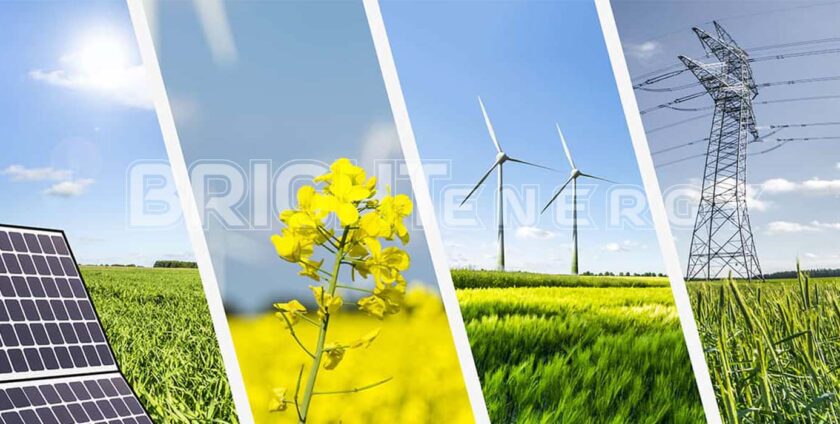
Farmers are progressively searching for means to monitor and conserve energy in their everyday tasks. The reasons are simple; the expenses of farming are increasing, thus reducing the expenses where conceivable is vital. Similarly, farmers are intensely mindful of expanding temperatures. If nothing is done to stop the increasingly higher temperatures, crop failure will become more common. All things considered, changes in climate designs, similar to these extreme dry spells straightforwardly put their livelihoods in danger. What’s more, net revenues are as of now quite lesser than before. Fortunately, there’s still some hope left. Solar power holds the solution for those searching for a system that can help them out. Yet, numerous farmers keep thinking about whether a solar panel irrigation system can deal with the water demands on their farms. We should dive into solar irrigation, how it works, and why it may be able to help you.
What is a Solar Panel Irrigation System?
Water supply on a farm is a basic need for crop growth and protection. In any case, you can’t generally rely on nature to give sufficient water when your harvests need it the most. In dry districts, watering the fields is a significantly more noteworthy concern with the presently depleting wells. Irrigation has for quite some time been utilized to reinforce the natural system of rainfall, giving farmers more control over crop development and giving a level of stability to the water supply for crops. Notwithstanding, pumping water takes a lot of energy, which builds the expense of working the farm. Throughout the long term, these costs add up. As some of you definitely know, when fossil fuel costs increase, so do the expenses to run the irrigation pumps. Then again, utilizing the sun’s energy is free – after the system is paid for, obviously. A solar panel irrigation system utilizes panels to power the pumps that send water to your fields. Over the long haul, a solar panel system more than pays for itself.
How Can It Work?
In an irrigation system, the water pumps shoot the water out into the field. For this purpose, the pumps are connected with solar panels as opposed to utilizing a conventional energy source. At the point when the sun’s rays strike the cells on the panels, that energy is changed over into electricity to power the pump’s engine.
Diverse Solar-Operated Pump Models
Likewise, with a customary irrigation system, consider the water source, irrigation technique, and harvest needs while choosing your pump. System proficiency relies on the right match between these three. A solar panel irrigation system is viable with the accompanying models:
Floating Pump Sets
In the event that you utilize a trench or open well as your water source, floating pump sets enable you to move the system to where you need it. In these systems, the solar array likewise should be versatile. By and large, this is finished with a mobile racking system.
Jack Pumps
At the point when you require high-head, low-stream irrigation, jack pumps regularly work best. Luckily, there are solar-powered pumps accessible for these systems that can deal with the necessary energy balance.
Submerged, Multi-stage Centrifugal Pumps
For huge farms that require an extensive irrigation system, this kind of solar panel system offers the best and the most proficient utilization of solar power. These systems pair alternating current-powered pumps with a solar array and use inverters to change solar energy over to AC power.
Each solar pump model enjoys benefits and drawbacks with regard to upkeep. Nonetheless, these systems commonly require less support than customary water pump systems. To take full advantage of your solar-powered water pump, you need to guarantee your irrigation system is intended to meet your farm’s needs and fulfill water demands.
What Are the Benefits of a Solar Panel Irrigation System?
Consistently, fossil fuels supply 2.419 terawatts (we’re talking trillions of watts) of energy to meet our power needs. Contrast that with the 173,000 terawatts the sun gives persistently (multiple times more than whatever the world uses), and utilizing the sun rather than fossil fuels bodes well.
-
As well as giving reliable energy, solar irrigation:
-
Has surprisingly low functional expenses
-
Requires less manual oversight than fossil-fuel powered systems
-
Is low maintenance
-
Doesn’t deliver greenhouse gases or other harmful emissions
What’s more, crops require irrigation most when conditions are dry. The twofold advantage of a solar system is that these are the specific occasions when the sun’s energy is generally plentiful. While a conventional irrigation system would cost more to work during dry periods, the sun’s energy is free. Along these lines, it costs nothing to work the water pumps when you need them most. Something else to remember is that these systems are turning out to be more reasonable.
While there are times when fossil fuels drop in cost, as we’ve all seen, they unavoidably go up. Indeed, even presently, market costs for fossils — particularly oil — are soaring as a result of supply issues and international issues. The more energy-free your farm is, the less you’re dependent upon factors out of your control.
Where Can Farmers Go for Help With Their Solar Panel Irrigation System?
Bright Energy is devoted to assisting farmers with accomplishing energy autonomy. A solar panel irrigation system can liberate you from the soaring costs and market volatilities of customary irrigation systems. They additionally give you plentiful and reliable energy when your crops are thirstiest. Regardless of whether you’re a DIY kind of individual or you’d like to have an accomplished group introduce your system, you can depend on Bright Energy lifetime support, in a real sense, forever.
On the off chance that you have any inquiries, reach out. We’d ❤ to chat with you.

Leave a Reply